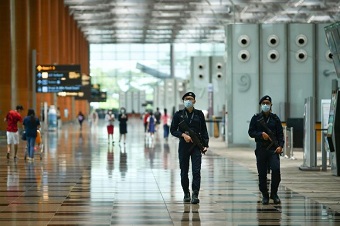With the threat of terrorism on civil aviation still palpable more than 20 years after the 9/11 attacks, Singapore is amending its laws to bring them in line with two international treaties that were crafted in the wake of the Sept 11, 2001, attacks in the United States to deter similar incidents.
The Singapore Parliament has passed the Hijacking of Aircraft and Protection of Aircraft and International Airports (Amendment) Bill. The new law criminalises the use of an aircraft as a weapon, the use of nuclear and biochemical weapons on planes, the transport of such dangerous materials, and cyber attacks on air navigation facilities. Individuals found guilty of these crimes will be jailed for life. The law also allows companies to be made criminally liable. Companies found guilty can be fined up to $1 million for these offences.
It is also an offence to threaten to commit these crimes, if the threats are credible, or to help another person evade investigation, prosecution or punishment. If found guilty, accomplices can be fined up to $500,000, jailed for up to seven years, or both. Those guilty of making threats can be fined up to $500,000, jailed for up to 10 years, or both.
These amendments pave the way for Singapore to accede to the Convention on the Suppression of Unlawful Acts Relating to International Civil Aviation, also known as the Beijing Convention 2010, and the Protocol Supplementary to the Convention for the Suppression of Unlawful Seizure of Aircraft, known as the Beijing Protocol 2010. A Ministry of Transport spokesman said Singapore will accede to the two international treaties “in the coming months”. The treaties were first signed in Beijing in 2010 and came into force in 2018. There are currently 42 parties to the two treaties, Senior Parliamentary Secretary for Transport Baey Yam Keng has said.
He told MPs that the threat of terrorism to Singapore remains high as groups such as the Islamic State in Iraq and Syria and Al-Qaeda remain resilient. Mr Baey cited examples of recent terror attacks on the civil aviation sector, including those near Afghanistan’s Hamid Karzai International Airport in August last year and attacks near Abu Dhabi International Airport in the United Arab Emirates earlier this year. He also cited the case of a Kenyan member of Al-Shabaab, Al-Qaeda’s East African affiliate, who was charged in the US with plotting a 9/11-style attack.








